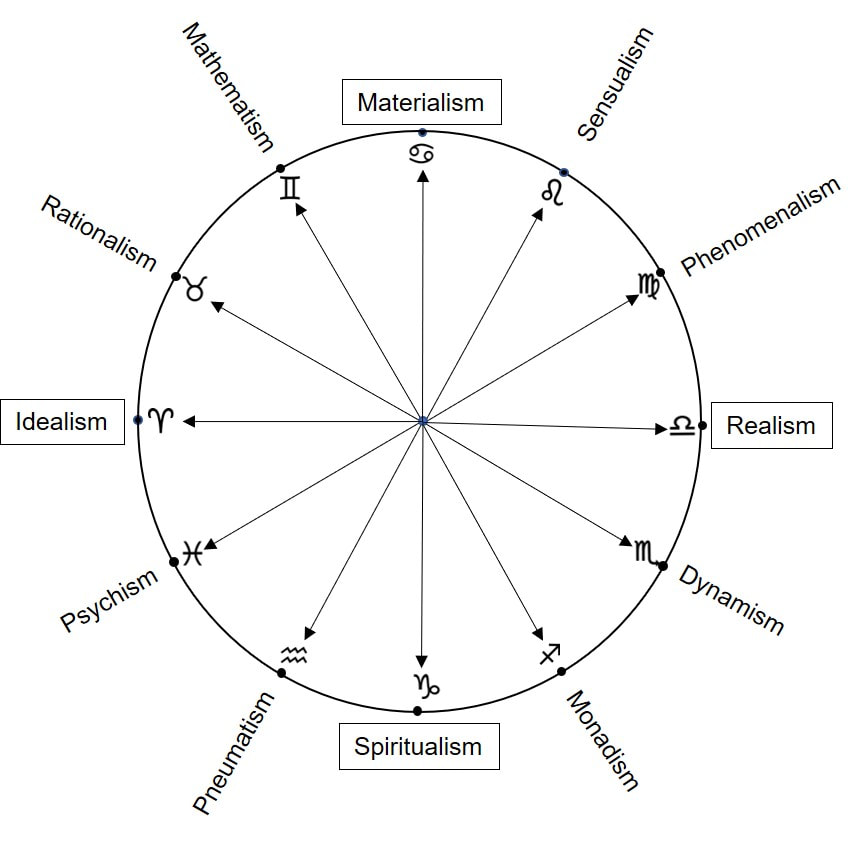|
by Rev Reingard Knausenberger Each month one of these world views will be expanded.
Materialism The importance of our daily experiences with the material aspect of the world is obvious and cannot be dismissed. Yet ‘materialism’ as a defined world-view is relatively recent, appearing only in modern times and taking centre stage in the 19th century. Mathematism has captured some of its domain in the meantime, as has dynamism, especially where it becomes the working theory for research. No doubt, materialism in its practical form is also permeating ever wider areas of our daily life. Something which the current pandemic is highlighting clearly, is how materialism is also occupying our soul life, often intrusively. It shows up particularly now how problematic it can be to generalise one world view over others as the guiding principle for everything else. It is worthwhile noticing in the composition of the twelve world-views the dynamic of being in this ‘symphony’, and that its polar opposite world-view creates a tension and possibility that opens up new insights and experiences, enhancing each other. Every human being born into an earthly body is immediately confronted with the corporal density and ‘hardness’ and impenetrability of matter. Its compact space-filling capacity and stability is astounding, like the characteristic feature of always being ‘surface’, an outside, never showing ‘inside’. Cut a tree, cut stone as many times as you like, dig as deep as you can, you always only encounter only new surfaces. This could be why ultimately materialism on its own will produce hunger, a sense of deficit and unfulfilled-ness. This discovery was also the first experience of Christ Jesus as he began ‘coming into himself’ 40 days later in the desert after the overwhelming experience of the baptism in the Jordan. The rulers of the earth, the spirits of resistance, the master of densifying, faced him: ‘If you are the Son of God, then turn these stones into bread’. And the truthful answer is: ‘The human being does not live by bread alone.’ Acknowledging that ‘stones’ have their place and purpose, but are not everything. This aspect belongs to the mainstream of Christ’s life and deed on earth, and is the underlying theme of the Christian path: penetrating the mystery of matter and corporality. What gives life, nourishes, builds from the inside out a stability of being? In John chapter 6 Christ has shown in the feeding of the 5,000 a first answer, but then wrestles with the non-understanding of the people around him, and with the disciples for comprehension: what manifests physically is first a spiritual manifesting activity. In the end, in the Last Supper, Christ makes bread to be his body. This presents us with the ultimate riddle of the spiritual-physical, birthed from the womb of matter. The materialistic world view will say: this is phantasy, while using ‘stones: money and things’ to create bread only to be hungry again. The spiritualist will say: it needs the rest of our earthly evolution to unlock this mystery in conscious human comprehension and to become creators of this ability to manifest living Spirit in matter and the laws of matter in Spirit reality. Materialism has its rightful place as a valid world view, necessary on our human journey to achieve who we can potentially be.
0 Comments
Leave a Reply. |
Articles Archives
December 2020
2023 - January to December
2022 - January to December 2021 = January to December 2019 - January to December 2018 - January to December 2017 - January to December 2016 - January to December 2015 - January to December 2014 - November & December 2013 - July to December 2013 - January to June 2012 - April to December Send us your photos of community events.
Articles (prefaced by month number)
All
|


 RSS Feed
RSS Feed